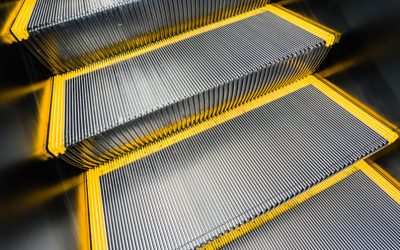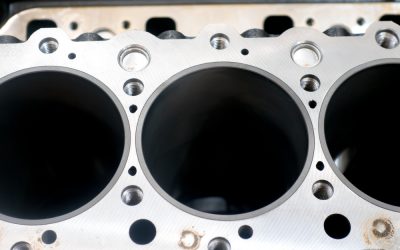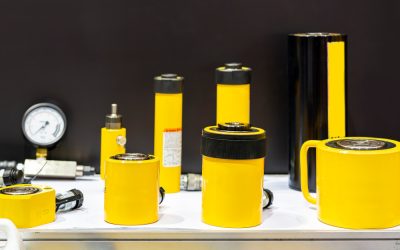A380 aluminum holds a prominent position as the most specified die-casting alloy available. Design engineers use it for diverse applications such as hand tools, gear cases, lawnmower housings, furniture, and more. Given its wide popularity, you may be interested in its composition, applications, and suitability for your die-cast part.
Read on for essential information to help you determine if it is suitable for your project.
Table of Contents
Aluminum A380 Chemical Composition
As a member of the 3xx.x alloy series, A380 is an Al-Si-Cu alloy, and alloys in this series are the most commonly used for die castings. Here, you can see a breakdown of its alloying elements.
| SL. No | Element | A380 |
|---|---|---|
| 1 | Copper (Cu) | 3-4% |
| 2 | Iron (Fe) | ≤1.3% |
| 3 | Magnesium (Mg) | ≤0.1% |
| 4 | Manganese (Mn) | ≤0.5% |
| 5 | Nickel (Ni) | ≤0.5% |
| 6 | Silicon (Si) | 7.5-9.5% |
| 7 | Tin (Sn) | ≤0.35% |
| 8 | Zinc (Zn) | ≤3% |
![]()
There are two things to note about the alloy’s composition:
- The main alloying element is silicon (7.5-9.5%), which enhances the alloy’s fluidity, allowing it to flow easily into complex molds during the die-casting process.
- It also contains 3-4% copper, which enhances the alloy’s tensile strength and hardness, but at the same time decreases corrosion resistance. (NADCA)
Mechanical Properties of A380 Aluminum
Engineers generally regard A380 as the ‘default’ alloy for aluminum die casting, due to its desirable combination of strength, ductility, and castability. Here are some key mechanical properties of A380.
| SL. No. | Description | A380 |
|---|---|---|
| 1 | Hardness, Brinell | 80 |
| 2 | Tensile Strength,Ultimate (MPa) | 324 |
| 3 | Tensile Strength, Yield (MPa) | 159 |
| 4 | Elongation % in 2in. (51mm) | 3.5 |
![]()
This alloy is well-suited for a wide range of die casting applications. Its relatively high tensile strength and excellent fluidity during the casting process allow for the production of intricate and complex parts with minimal defects.
Physical Properties of A380 Aluminum
Here are some key physical properties of the alloy.
| SL. No. | Description | A380 |
|---|---|---|
| 1 | Thermal Conductivity (W/m °K) | 96 |
| 2 | Electrical Conductivity %IACS | 23 |
![]()
High thermal conductivity in aluminum alloys, like A380, enhances their suitability for die-casting applications, particularly in industries where effective heat dissipation is essential for maintaining performance and durability, such as automotive and communication. (MDPI)
Applications of the A380 Aluminum Alloy
A380 aluminum is a general purpose die-casting alloy that can be used for diverse applications, and some of the most common are:
- Automotive Components: Companies use A380 aluminum to make components like engine parts, transmission housings, and brackets due to its strength, durability, and light weight.
- Electronic Housings: The alloy’s thermal conductivity and electromagnetic shielding properties make it popular choice for LED lighting fixtures and telecommunications equipment.
- Power Tools and Machinery: Manufacturers often use A380 to produce power tools, machinery housings, and components due to its strength, durability, and ease of machining.
So, how does this alloy compare to the others you might consider?
A380 vs. Other Alloys

This alloy is essentially the first consideration for many applications — what you might refer to as the ‘default.’ Depending on the requirements for your product, it can make sense to specify another alloy instead.
- A360: It has similar properties overall, but offers significantly better corrosion resistance and higher strength at elevated temperatures. More Info ⇾
- A383 (ADC12): This alloy is ideal for more intricate parts due to its die filling properties and resistance to hot cracking. It also offers better machinability. More Info ⇾
- B390: The main benefit of this alloy is its very high wear resistance and hardness. However, it has lower ductility and a low elongation percentage. More Info ⇾
- A413: Its biggest advantage is its pressure tightness, making it better suited for components that must contain fluids or gases without leakage. More Info ⇾
It is worth considering these other alloys if your part has any of the requirements mentioned.
Surface Finishing for This Alloy
A380 can also accept surface finishes such as anodization and powder coating. These finishes can enhance the appearance of a die cast part and improve corrosion resistance.
Need a Second Opinion?
At Gabrian, we offer custom die cast parts produced in India and can make alloy recommendations for your part. Contact us today to discuss the details of your project, and we’ll be happy to provide you with a part review and quote. Learn more about our die casting services.





